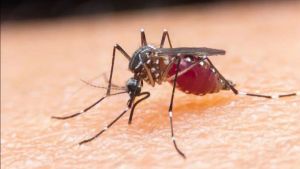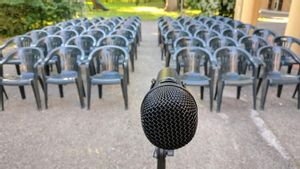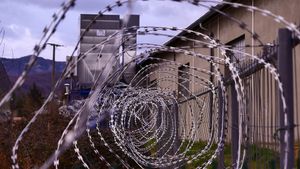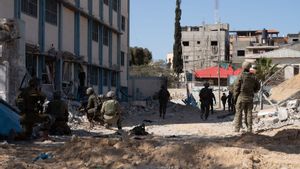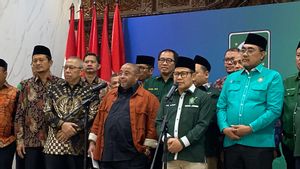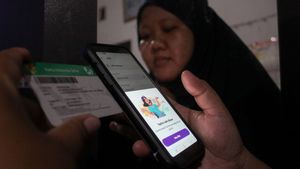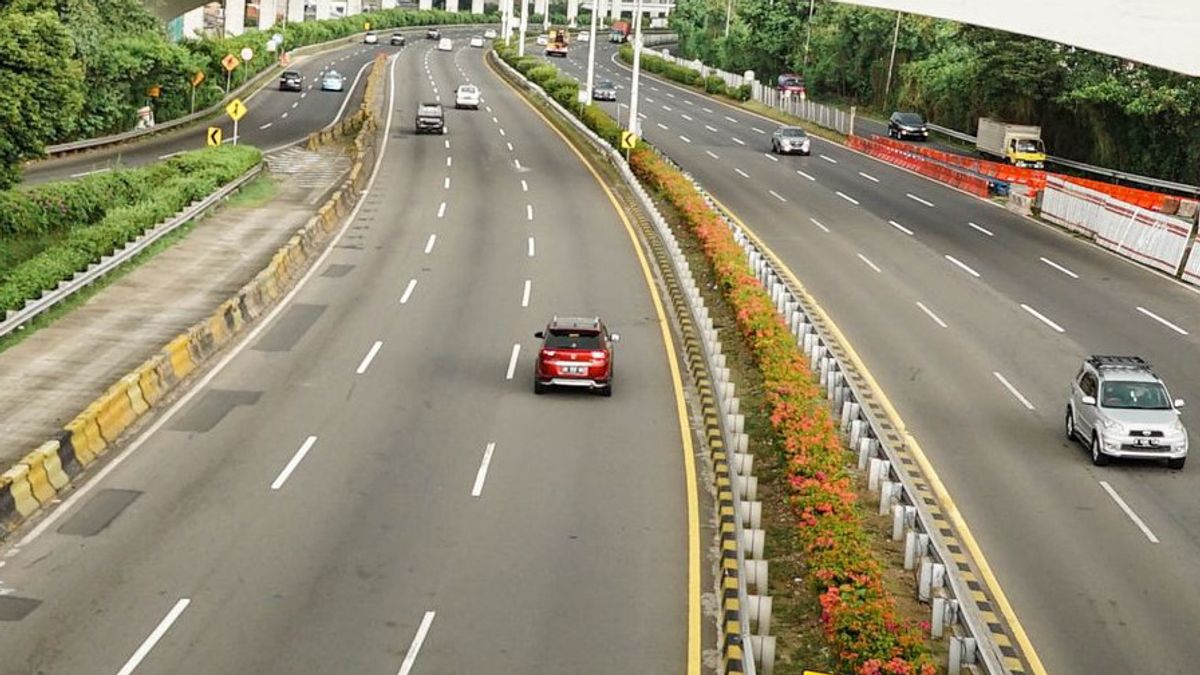
JAKARTA - The Ministry of Public Works and Public Housing (PUPR) continues to monitor and evaluate toll roads that are affected by the Large-Scale Social Restriction (PSBB) policy. Based on Government Regulation (PP) No. 21 of 2020 concerning PSBB in the context of accelerating the handling of COVID-19, there are 14 toll roads spread across the DKI Jakarta, Banten and West Java Provinces implementing PSBB with the main principle of limiting movement and limiting people's interactions.
"The reduction in toll road traffic during the PSBB ranges from 42 percent to 60 percent. Traffic figures are still dominated by local movements in the Greater Jakarta megapolitan area and logistical movements (freight transportation)," said PUPR Minister Basuki Hadimuljono in a written statement, Tuesday, April 28.
He said that toll road and non-toll road services continue to operate as a logistics route for the movement of staple goods / food, medical devices, as well as health services / medical vehicles, but also for the movement of people on a local scale or in the Jabodetabek area.
President Joko Widodo reminded again the importance of strong discipline for every citizen in implementing the work from home policy as an effort to break the chain of the spread of COVID-19, and not to go home in 2020. Thus, it is hoped that traffic on toll roads will decrease even further.
In DKI Jakarta province, there are 7 toll roads within the PSBB area, namely the Cawang-Tomang-Pluit Toll Road, the Cawang-Tanjung Priuk-Ancol Timur-Jembatan Tiga / Pluit Toll, the JORR Non S Toll Road (Sections E1, E2, E3), JORR S, JORR W2 Utara, JORR W2 S, and Prof. Toll Road. Dr. Ir. Soedijatmo. The average reduction in toll road traffic in the DKI Jakarta area is 42 percent with the largest reduction rate being on Prof. Sedijatmo (Airport) by 57 percent.
In order to reduce the potential for the spread of the COVID-19 virus during the Lebaran 2020 homecoming period, the Minister of PUPR Basuki Hadimuljono issued a permit for the temporary closure of the Jakarta-Cikampek II (Elevated) Toll Road as an effort to restrict and control transportation. The temporary closure of the Japek II Elevated Toll Road will take effect from Friday, April 24, 2020 until the end of the Lebaran 2020 prohibition period.
The closure of the Japek II Elevated Toll Road applies to both directions, both Cikampek and Jakarta. All accesses are closed, both from the JORR and Jakarta-Cikampek Bawah directions and the Cikunir 6 toll gate (GT) towards Jatiasih and GT Cikunir towards Rorotan.
Meanwhile, in the Banten region, there are 2 toll roads implementing the PSBB, namely the Jakarta-Tangerang toll road and the Tangerang Merak toll road, with an average traffic reduction of 37 percent. The largest reduction figure was on the Kunciran-Serpong toll road, amounting to 60 percent. The check points are scattered in West Serang GT, East Serang GT, East Cilegon GT, West Cilegon GT and Merak GT.
In the West Java region, there are 5 toll roads implementing the PSBB, namely the Jakarta-Bogor-Ciawi toll road, the Jakarta-Cikampek toll road, the Jakarta-Cikampek II elevated toll road, the Cikampek-Padalarang toll road, and the Padalarang-Cileunyi toll road. In the West Java region, the largest reduction rate was in the Jakarta-Cikampek toll road, amounting to 60 percent.
For inter-regional toll roads, the reduction in traffic figures is higher due to restrictions on movement, especially the Eid homecoming. As an illustration, for the Cikarang Utama to Kalikangkung (Semarang) section the decline ranged from 60 to 70 percent, while for the Bakauheuni-Bandar Lampung section the decline until the end of April ranged from 70 to 80 percent.
The Ministry of PUPR also took measures to prevent COVID-19 on toll roads with the issuance of a Circular of the Minister of PUPR 07 / SE / M / 2020 concerning the application of physical distancing in 25 Rest and Service Places (TIP) or Rest Areas. One of the social distancing standards is by limiting the number of vehicles entering the TIP / rest area to 50 percent of the holding capacity.
In addition to limiting vehicles, all toll service officers on duty must pay attention to the COVID-19 Health Protocol, including maintaining distance, wearing masks, washing hands and conducting socialization through VMS, brochures, posters, and social media.
The Ministry of PUPR has distributed assistance for completing Personal Protective Equipment (PPE) such as masks and safety glasses used for toll service officers serving road users as well as disinfecting and hand washing facilities in rest areas.
Also prepared are an ambulance standby facility in collaboration with the hospital, and spraying disinfectant at the location with the suspect corona according to the health protocol on the toll road.
The English, Chinese, Japanese, Arabic, and French versions are automatically generated by the AI. So there may still be inaccuracies in translating, please always see Indonesian as our main language. (system supported by DigitalSiber.id)


